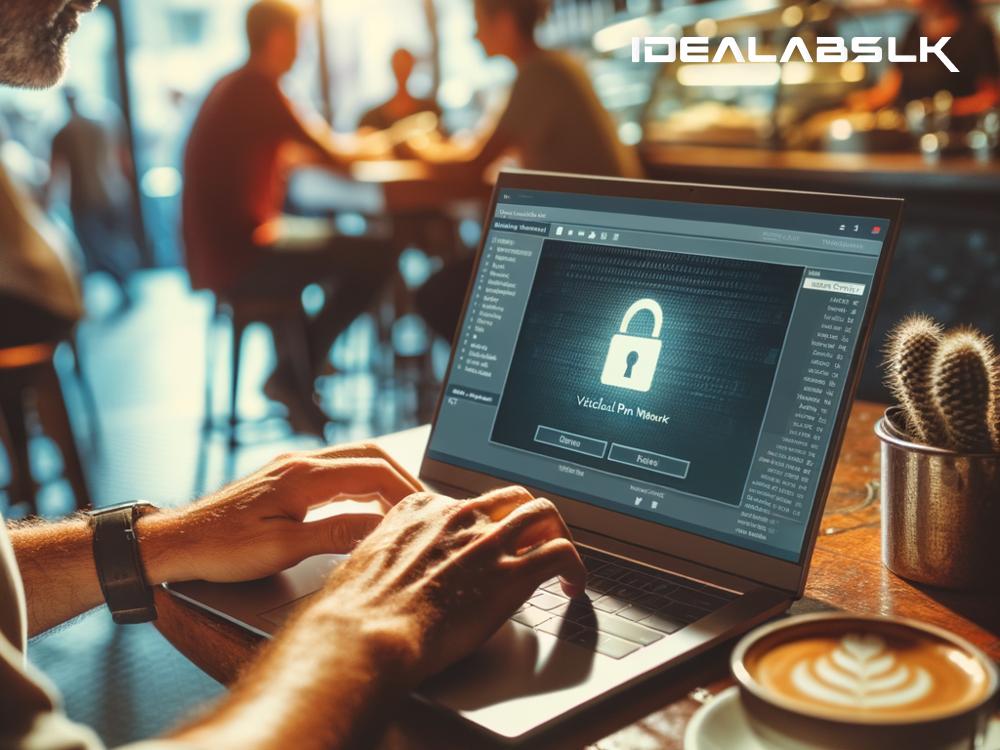Exploring VPN Software for Remote Work Security
In today's world, where remote work has become more common than ever, keeping our digital life secure is a top priority. Whether you're working from your cozy home office or sipping coffee at a bustling café, ensuring that your online activities are protected is crucial. One powerful tool in maintaining online security is VPN software. Let's dive into why VPNs are a game-changer for remote work security and how they work in simple terms.
Understanding VPNs
VPN stands for Virtual Private Network. Imagine it as a secure tunnel for your internet traffic. When you use a VPN, your data travels through this protected tunnel, making it hard for anyone to spy on your activities or steal your information. It's like sending a secret letter through a secure, hidden passage instead of regular mail.
Why VPNs Matter for Remote Work
With more of us tapping into public Wi-Fi networks at cafes or using potentially unsecured home internet setups for work, the risk of cyber threats looms larger. Here's why using a VPN is crucial for remote work:
-
Privacy Protection: VPNs help keep your work activities private. Without a VPN, hackers or even the café's Wi-Fi provider could peek into what you're doing online.
-
Secure Data Transmission: Sending files or sensitive information? A VPN ensures that your data reaches its destination securely, reducing the risk of interception.
-
Access Content Safely: Need to access resources from different geographical locations or restricted sites? VPNs can help you do this safely and without compromising your security.
-
Maintains Anonymity: While working remotely, especially in public spaces, maintaining anonymity online can protect you from targeted attacks. A VPN helps mask your identity.
Exploring VPN Features for Remote Work
When choosing a VPN for remote work, it's important to look for certain features that cater to your needs. Here are some key aspects to consider:
- Strong Encryption: Look for a VPN that offers robust encryption methods. This ensures that your data is securely scrambled and unreadable to outsiders.
- No-Log Policy: Opt for a VPN provider that doesn't keep logs of your online activities. This enhances your privacy even further.
- Ease of Use: The VPN should be user-friendly, with simple setup processes and an easy-to-navigate interface.
- Multiple Device Support: As remote workers often use more than one device, finding a VPN that supports multiple simultaneous connections is beneficial.
- Speed and Reliability: Since your data travels through an additional layer, some VPNs can slow down your internet speed. Look for a VPN that offers fast and stable connections to avoid disruptions during work.
Getting Started with VPNs
Starting with VPN technology might seem daunting, but it's quite straightforward. Here’s a simple way to get going:
- Research and Choose: Begin by researching reputable VPN providers. Consider the features mentioned above and what suits your work needs best.
- Sign Up and Download: Once you've selected a provider, sign up for their service, and download their VPN app on your device(s).
- Connect to a Server: Open the app, log in, and connect to a server. You might want to choose a server close to your location for better speed.
- Enjoy Secure Browsing: That’s it! You're now browsing securely. All your online work activities are protected by the VPN.
Final Thoughts
In the era of remote work, ensuring our online security is non-negotiable. VPNs offer a simple yet effective solution to keep our digital activities safe from prying eyes. By encrypting our data and masking our online presence, VPNs provide peace of mind, whether we're handling sensitive work documents or simply browsing the web.
Remember, not all VPNs are created equal, so it's essential to choose one that aligns with your specific needs and maintains a high standard of security and privacy. By doing so, you can embrace the flexibility of remote work without compromising on your digital security. Welcome to a safer way of working online!

